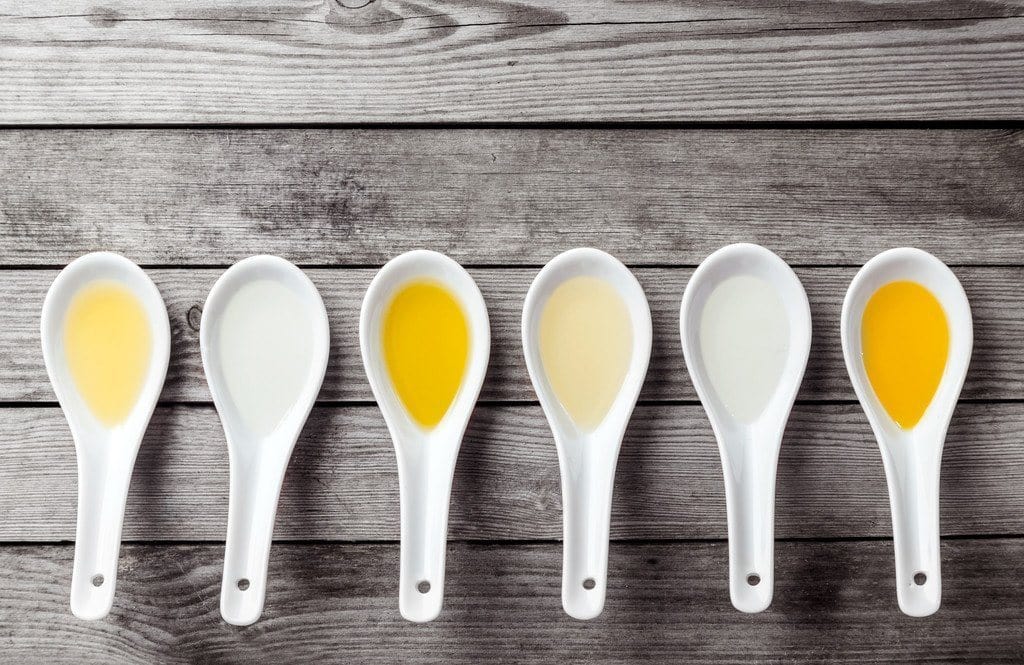The answer might surprise you
Healthy fats are an important part of a balanced diet, providing satiety, aiding healthy brain function, and promoting great hair, skin and nails – to name a few benefits. Oils can be a great source of essential fatty acids (EFAs), and an easy way to include good fats in your diet, as most people use oil in their cooking every day.
However, using the wrong oils or using oils in the wrong way can have the adverse effect and end up being detrimental to your health. So which is best? There is no simple answer to this question because different kinds of oils are best used for different purposes.
Here’s what you need to know to make healthy oil choices and match the right oil to your food preparation method; from frying and baking, to sautéing and salad dressings.
Ditch the “vegetable oils”
Yes, common vegetable oil may be a cheap option for cooking, but it is also high in polyunsaturated fats, which form a harmful compound called HNE when you heat them, meaning it’s not such a good choice. Oils like corn, soy and sunflower fall into this same category and are definitely ones to avoid.
If you cook with these oils, the HNE product will end up in your food, which will then be absorbed into the body where it can have detrimental effects. No thank you!
Watch the smoke point
If you’re cooking and notice that the oil is changing colour, it should sound alarm bells, as this is an indicator that the oil structures have began to degrade on a chemical level. When this happens, harmful compounds called free radicals are formed, along with other detrimental byproducts.
This is why it’s important to choose a cooking oil that has a high smoke point, especially when working with moderate to high temperatures. Different oils have different smoke points, so familiarising yourself with the recommendations at the end of this article is valuable in knowing which one to use for what.
As well as the type of oil, the refining process is another factor that affects the smoke point of oils. Unrefined oils have a lower smoke point than their refined counterparts, so don’t ruin your expensive extra virgin olive oil on the stove and save it for non-heat uses instead.
Use a variety of healthy oils
Using a mixture of good oils is the best way to get a multitude of health benefits, as each has unique nutritional advantages (for example, coconut oil is high in MCTs and lauric acid, while flaxseed oil is an amazing source of omega 3s). It also means that you can mix-and-match oils as needed to do your food preparation in the healthiest way.
Here are nutritionist and chef Monica Reinagel’s recommendations for the best oils to use in the kitchen:
High-heat cooking
For frying, searing, grilling, stir-frying, or roasting, I suggest light (or refined) olive oil, avocado oil, clarified butter (also known as ghee), or coconut oil. All have a high smoke point and are low in polyunsaturated fats.
Medium-heat cooking
For gentle sauté, stewing, baking, or braising, any of the above would work fine. For extra flavor, you could also choose a filtered olive oil.
Off-heat cooking
If you're making a salad dressing or drizzling over a finished dish, choose unfiltered extra virgin olive oil, flaxseed oil, or unrefined or toasted nut and seed oils for maximum flavor and health benefits.


